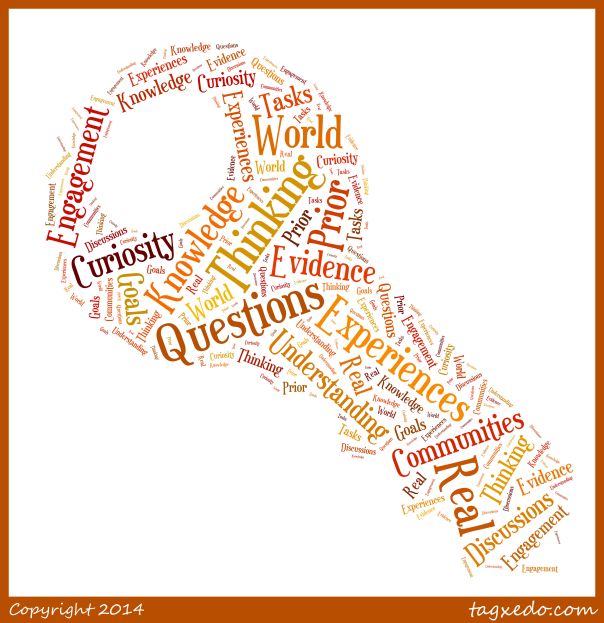
My collection of words that I feel make up inquiry learning is put into a key. I chose a key because I feel that these words or items are important to learning. They are key ideas or thoughts that I believe help make up the inquiry learning process.
Before brainstorming mini-lessons…I apologize for any ramblings or not making sense. I have been fighting a “crud” since Thursday, but I’m trying my best to make coherent thoughts.
Now to brainstorm on my mini-lessons. There are so many things that could be chosen. Considering that I am currently certified for Early Childhood Education, and I currently work in an elementary school tutoring 1st, 3rd, and 4th graders Reading and Math. I think that I would try to develop mini lessons for one of those grades.
The ideas here are by no means the final thoughts or ideas I have for my mini-lessons. As I mentioned before this is just a brainstorm.
I think for mini-lessons I could focus on grade four fractions. Fractions seem to be something that my students are having difficulties with. As a school librarian, I would help to find books or interactive games/lessons that talk about or use fractions. Then I would try to provide other technology tools to help engage, enhance, or extend the learning.
1. Authenticity: I think that the lesson has authenticity because fractions are all over. EVERYWHERE! If students have a min-lesson on finding fractions out and about, I think they would understand fractions better.
2. Deep Understanding: Through this study I want my students to understand that fractions happen in everyday items that we use.
3. Performance: Students would take pictures of fractions they see and post them in a blog or website.
4. Assessment: I would have a rubric for the students to follow. I would allow time to share or discuss findings.
5. Technology: Students could make a movie, take digital photos, create a presentation, etc. then post it online.
6. Expertise: For this section, there could be a visitor/speaker to talk about how fractions are incorporated into their jobs. Or there could be a video for students to watch of an expert talking about it.
7. Success: I think for students to recognize success of their work, they should be provided with time to accomplish the task within the classroom. They should be allowed to discuss with others how their progress is going.
8. Citizenship: For students to have citizenship. They could reflect on their work.
I think the article by Keren-Kolb is something that I will definitely refer back to when creating my mini-lessons. When I previously read the article I thought about how I could use it in another course that I am having to use technology in. I think that it is very important to make sure that your students are Engaged; the lessons Enhance the learning of the topic; and that the lesson can Extend outside of the school. We are supposed to provide children with knowledge to grow and use in the real-world. If the students don’t find the information relevant, then they won’t be motivated to learn it.
As said in the article by Laufenberg “They (students) have to be self-driven, independent thinkers.”